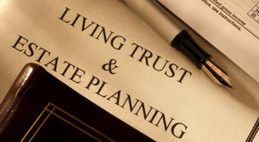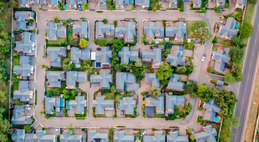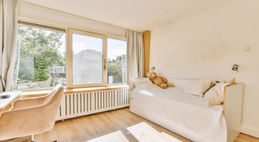When choosing an investment property it’s important to know your budget and know what you can get with it. Unlike buying shares, real estate property does not have a transparent value. This gives you the opportunity to buy an asset that is below market value if you are knowledgeable and patient. The first step is meeting with a mortgage broker and getting pre-approval, that way you won’t waste your time looking at properties you won’t be able to afford. Once you know your budget you can choose a suitable area and do your research on what other properties are selling for .
The correct loan structuring advice can increase the tax effectiveness of your loans, help protect your assets, and can make restructuring your loans when your circumstances change easier.
Should you go for a line of credit, an interest only loan, a loan with a 100% offset account, a plain old principle and interest loan or something else? For a simple borrowing scenario, this can make little difference; however when things become more complex and clients are planning on having multiple properties it definitely starts to matter. We see many borrowers getting caught up in technicalities such as small differences in lenders fees and rates and missing the big picture. The best investors understand that small short-sighted gains can really affect long-term prospects. Good advice upfront can potentially save you thousands in the future.
Do your sums
When you become an investment property owner, there are many more costs involved then just your mortgage repayments. Properties that require a higher level of maintenance need to be factored into your budget. Rental income and purchase price (yield) are only the tip of the iceberg. If you take out a mortgage you will need to carefully consider if you will be able to make payments in a number of adverse circumstances such as late payment / no payment of rent by your tenants, property damage resulting in long vacancy periods and external financial issues such as a period of unemployment. Did I hear some one say insurance!
My advice don't buy if you can't manage without the rental income for a period of say 3 months or if you think your employment or business income is not 100% secure.
Make yourself aware of taxes involved in property investing and add these into your calculations. I can provide a laymans view but tax advice from your accountant should be sought. Stamp Duty, Capital Gains Tax, Tax Deductibility of interest and other property expenses as well as Land Tax (is it applicable?) all need to be taken into account.
You should know also that banks only take (in general) 80% of the expected rental income into account when working out whether you can afford an investment loan and they will service the potential and existing loans at higher rates than you actually pay. If you need help to work out the cost of holding an investment property you can contact us.
Choose a property that’s attractive to tenants and owner occupiers: It’s not about you!
Always think of your target market when choosing an investment property. When it comes to location, being close to the right amenities is the key. For your target demographic these include things like public transport, shopping centers and schools. It’s common for families to rent in a specific school zone so do you research on which schools have good NAPLAN scores and are therefore good as they will be in demand. In inner city locations or close to the city locations off street parking is a big plus.
Look to buy in areas that are dominated by owner occupiers not other investors. This will give you more upside in capital growth and also mean you have a pool of (usually higher quality) tenants looking to rent your property.
Choose land value over property value
Land appreciates while buildings depreciate. So while there can be tax advantages (claiming depreciation) and lower maintenance costs when buying new property be careful not to choose property that has a small land value component. Off the plan high rise inner city comes to mind as one to avoid. I think as a minimum the land component should be at least 60% of the total property value (for a freestanding home, less for units and townhouses). As always there are no hard and fast rules but it is something to consider none the less.
Choose well located metro areas with a history of growth (but not too much)
Looks for property that has a history of capital gains as close to metro areas as possible. Approximately 80,000 people moved to both Sydney and Melbourne every year for the last 10 years. They need somewhere to live!
Look for property in areas that may have under-performed neighbouring suburbs for example. Don't choose the area that has just had 50% more growth over the last few years than elsewhere.
Look for future development upside
Buy property that stacks up as is but with eye for future development potential. This may be a small renovation or possible a subdivision, townhouse development etc. get to know your areas planning laws.
Property Investing is a waiting game
Always remember when choosing a property that you are aiming to commit long term. Property prices won’t rise straight way, the longer you can afford to commit the better. Property like any market often does virtually nothing for years and then can grow incredibly quickly in a 12 or 24 month period. Sydney from 2004-2016 is a classic example. Virtually no "real" growth from 2003-2013, then kaboom up 50% over the following 2.5 years.
Don't get carried away
Don't stretch yourself so thin that a downturn or loss of rental income puts you in financial danger. Take it easy and always manage risk appropriately. Just because your property goes up in value and you can buy another doesn't always mean you should.
Don't look for gurus
More than any other investment space property is filled with sharks and gurus promising average folk early retirements and a better standard of living. Avoid these people / companies. Educate yourself. Don't sign up for $10K - $20K courses with "property educators" who usually have questionable dealings with property sellers.
How to choose an investment property (without getting burned) - Top 10 tips
1) Do your finance due diligence.
2) Get your structure right.
3) Be prepared for hidden costs.
4) Choose property in areas dominated by owner occupiers and that appeals to tenants.
5) Choose a property where the land value makes up the majority of the property value if possible. At least 60% is my rule of thumb for free standing houses.
6) Choose areas with a history of capital growth as close to metro areas as possible.
7) Choose property with some potential future upside.
8) Be patient.
9) Don't get carried away with investing in property by over committing.
10) Don't pay for expensive property tutors / courses. Don't follow property gurus. Educate yourself.
































